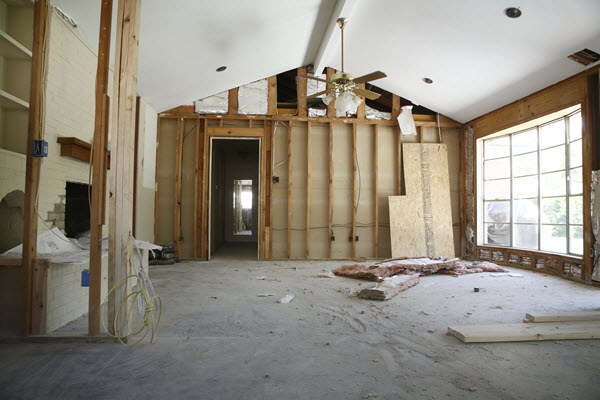Your home should be your castle, but it’s hard to be comfortable when you feel like the walls are caving in.
The psychology of space goes deeper than just our physical likes and dislikes, choice of paint color or decorations. The way we feel about our spaces, especially in our home, can be both a reflection and cause for our mental state.
So, what if this space simply isn’t working for us?
When Honey-Do Turns Into A Nightmare

For most homeowners, there’s a long to-do list in the back of our minds. From painting to remodeling and everything in between, seeking balance and order is in our nature.
Let’s face it:
Our home should be our sanctuary. It’s a place to rest after work or school, protection from the outdoor elements, and an environment for the family. But when the things we don’t like about our home begin to pile up, this tranquil setting can take a turn for the worst.
Cindy Glovinsky, psychotherapist, professional organizer, and author, builds on this idea of the mental burden of dysfunctional space. She says, “Order feels good, in part, because it’s easier for our brains to deal with and not have to work so hard.”
The things we don’t like about our home can go further than just minor annoyances. Day in and day out, living with dysfunction has been shown to raise the levels of cortisol in our body, also called the “stress hormone.”
- Chronic stress may eventually lead to physical effects while also keeping our brains in fight-or-flight mode.
- Physical effects of unaddressed stress can range from fatigue and low energy to headaches and muscle pain.
- Over time, our mental state may begin to suffer even more through difficulty concentrating, moodiness, and irritability.
Time To Tackle Those Projects
When the stress of our space becomes too much, a sense of urgency might kick in and inspire us to get started on those long overdue projects. Yet before we know it, half-finished projects can quickly snowball into the chaos of procrastination and perfectionism.
Perhaps, it’s poor planning that catches up to us when we realize a project is better left to professionals. Or maybe, our energy runs out faster than we imagined. Projects put on hold and left halfway through can leave our spaces even more uncomfortable and dysfunctional.
- More than one in four households are looking to remodel their kitchen
- Over half are planning on repainting
- 25% of Americans need to replace or repair their drywall
See Also: 5 Features to Achieve a Peaceful Home
Unfinished Projects And Clutter = Stress

Unfinished projects and even the idea of home improvement can be enough to push us over our stress threshold. A more subtle side effect may arise as well — one that makes us address our own mental and emotional state.
Donald Rattner, architect and author of Your Creative Haven states, “Our mental space stands in direct proportion to our perception of physical space.”
While the common notion of “messy room, messy mind” may be rooted in truth, this is a wide blanket statement. The reality isn’t as simple. For a truly meaningful project, no matter how long it has been put off, it’s important to ask ourselves what we really want and need out of this space.
- Fixing and changing our physical space is an invitation to let go of the past, physically and, perhaps, emotionally
- In the simplest terms, once our environment fits our personal specifications, the job is finished and we can congratulate ourselves on a job well done
- Seeking an endless cycle of “perfection” can result from poor planning; pace yourself during the ideation phase
Coming to terms with a physically dysfunctional home is the first step but it isn’t always easy. Planning for changes and updates can be even harder.
Though discomfort may give way to ill-advised action, it’s important to celebrate the small victories and build plans with measurable, meaningful steps. When the planning phase is honest and realistic, it will be clear if a project or renovation is too much for us to hand on our own.
Consider consulting with professionals for opinions, quotes, and advice for what is and what is not possible.
Be realistic, especially before any work begins. Create a timeline and budget to follow.
Stick to your plan and check off finished items. Seeing improvements in small steps can help shrink a large project down to size and prevent us from feeling overwhelmed.
When working with professionals, be as specific as possible for your vision.
Ready to take control of your space and finally make it work for you?
Here’s how to do it like a pro, detailed in this infographic.

Source: Psychology of Space
The post How Your Home Affects Your Mood (And What To Do About It) appeared first on Dumb Little Man.
from
https://www.dumblittleman.com/the-effect-of-the-physical-environment-on-mental-well-being/

No comments:
Post a Comment